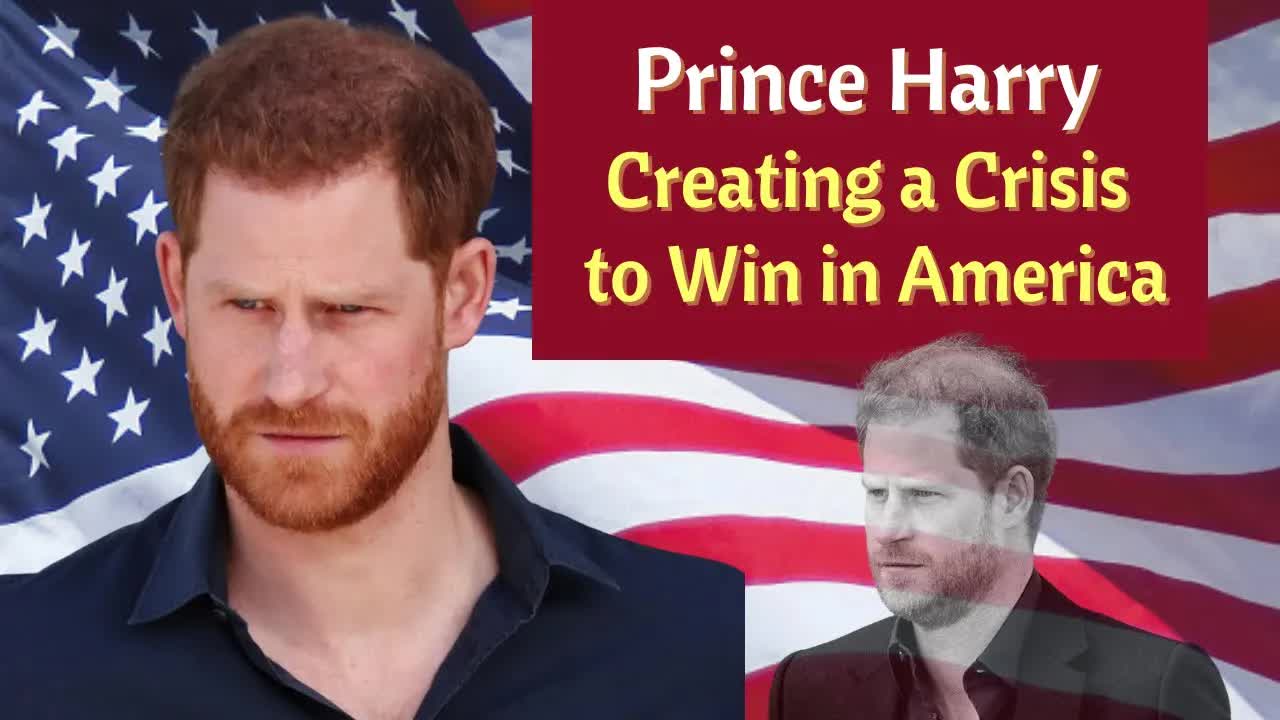In a surprising twist that has caught the attention of many, Prince Harry has recently joined the Aspen Institute as a commissioner on its newly formed Commission on Information Disorder.
This initiative aims to tackle the pervasive issue of misinformation and disinformation in America.
But is this move genuine, or is it merely a strategic play by Harry and Meghan to bolster their brand in the States?
A few weeks ago, Harry made headlines by claiming that he wants to combat the avalanche of misinformation affecting individuals today.
However, some critics argue that he and Meghan have been at the forefront of spreading misinformation themselves.
The irony of Harry, a figure often associated with controversy and sensational claims, stepping into a role dedicated to addressing misinformation raises eyebrows.
Is he truly committed to this cause, or is it a means to an end for him?
The Aspen Institute, a respected nonprofit organization, announced this commission earlier this year, with the goal of developing actionable responses to the information crisis undermining public trust in democratic institutions.
The commission includes notable figures such as journalist Katie Couric and former cybersecurity director Chris Krebs, alongside Harry.
This diverse group is set to conduct a six-month study to assess the state of misinformation in America, but many question whether Harry’s presence adds credibility or confusion to the effort.
Critics have pointed out the hypocrisy of Harry’s involvement, especially considering his recent media appearances, including the much-discussed interview with Oprah Winfrey.
During that interview, both Harry and Meghan criticized the British press, alleging that it played a significant role in their decision to step back from royal duties.
Yet, their claims have been met with skepticism, particularly regarding their portrayal of events and motivations.
Is Harry genuinely seeking to improve the media landscape, or is he simply trying to deflect criticism aimed at him and his wife?
The commission is tasked with identifying urgent issues related to misinformation, with an interim report expected shortly after its initial meetings.
However, some believe that Harry’s motivations are self-serving.
His personal experiences with media scrutiny may shape his contributions, but does that make him a reliable advocate for change?
It seems that his focus might be more on protecting his own interests rather than addressing the broader societal implications of misinformation.
Moreover, the notion of a wealthy prince advocating for the common good raises questions about representation.
Critics argue that Harry’s background and privilege do not reflect the diverse voices needed in discussions about misinformation.
If the commission truly seeks a variety of perspectives, it must include individuals from different socioeconomic backgrounds who can offer insights grounded in real-world experiences.
As the commission begins its work, the stakes are high.
The spread of misinformation poses a significant threat to democracy, and the actions taken by this group could influence public discourse for years to come.
However, there’s a palpable tension surrounding Harry’s involvement.
Many feel that his past actions and statements cast doubt on his ability to contribute meaningfully to the commission’s goals.
Furthermore, Harry’s presence on the commission raises concerns about the potential for a conflict of interest.
How can he advocate for transparency and accountability when he himself has been accused of spreading misinformation?
The challenge for the commission will be to navigate these complexities while striving for authenticity and integrity in its findings.
The Aspen Institute’s mission is commendable, but it faces the uphill battle of reconciling its objectives with the realities of celebrity influence and media manipulation.
As discussions unfold, it will be crucial for the commission to remain vigilant against the very tactics that Harry and Meghan have been accused of employing.
In a world where misinformation can easily sway public opinion, the need for transparency and accountability has never been more critical.
The question remains: can a figure like Prince Harry truly contribute to this cause, or will his involvement only serve to muddle the conversation further?
As the commission moves forward, the eyes of the public will be watching closely, eager to see whether this endeavor leads to meaningful change or simply reinforces existing narratives.
Ultimately, the challenge lies in fostering an environment where diverse viewpoints can coexist and thrive.
If the commission genuinely seeks to address misinformation, it must prioritize inclusivity and authenticity over celebrity status.
Only then can it hope to create a lasting impact in the fight against misinformation in our society.










